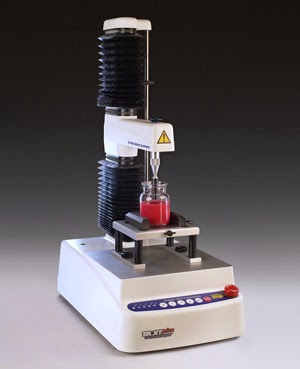 We recently came across an article ‘For Robots and Prostheses, New Stretchable Electronic Skin’.
We recently came across an article ‘For Robots and Prostheses, New Stretchable Electronic Skin’. A team of Japanese scientists have created an ultra-light weight polymer skin, complete with electronic sensors, that could help develop new medical implants and smart skin for prostheses and robots.
"This technology will lead to biomedical sensors that cause no discomfort at all to the wearer," said Takao Someya, a materials scientist at the University of Tokyo. "They could measure body temperature and heart rate in a stress-free way, and their shock-resistance means they will work even during sport and exercise."
The plastic-based circuitry is lighter than a feather and less than one micron thick.
Besides the sizable achievement of combining electronic sensors with ultra-thin material, the ability of the new polymer to stretch greatly increases its range of future applications.
"The sensors, which have the consistency of plastic food wrap, can be bent, stretched, crumpled and placed in wet environments without affecting their ability to operate – key characteristics of artificial skin designed to sense touch or temperature."
The researchers reported that the electric and mechanical performance of the new bionic skin was practically unchanged even when stretched by up to 233 percent.
Testing the efficacy of skin care products
 |
| Indentometric analysis of the inner forearm using a hemispherical probe |
"One particular category benefitting from the current booming skin care market is anti-ageing. With media emphasis on the importance of skin that looks youthful and radiant, a growing number of women are asking for skin care products that will help reduce the signs of ageing. Accordingly, this sector has seen a significant expansion in products claiming to tighten and firm the skin.
"One recent report describes how skin tightening claims are becoming more overt on product packaging, and are increasingly supported by scientific trials. As a result, it is becoming more important for manufacturers to be able to differentiate their products and substantiate the claims they make. Extensive work recently undertaken by International Specialty Products (ISP) has focused on quantifying the effectiveness of skin care products by testing them on the skin of human panelists.
"Using a texture analyzer to measure the tightness of the skin both before and after the application of selected treatments, this work shows the potential of texture analysis instrumentation in testing the efficacy of skin care products and substantiating skin tightening claims."
Click here to read more...
Synthetic Skin for texture analysis testing
There has been a growing interest in the need to measure the effects of certain products on or removed from skin. In these instances researchers often prefer to look for a repeatable substrate which can act as a constant whilst being able to measure the variable presented by the differing treatments that are placed on the artificial skin. There are now a wide range of commercially available products that have the surface texture and appearance of real skin.
‘Skin’ of the future?
Now researchers are looking into advanced ‘skin’ materials that can, for instance, heal themselves for application on such products as mobile phones.
For more information, please read this Daily Mail article...
Who knows what other potential applications will arise for products such as this in the future?

The TA.XTplus texture analyser is part of a family of texture analysis instruments and equipment from Stable Micro Systems. An extensive portfolio of specialist attachments is available to measure and analyse the textural properties of a huge range of food products. Our technical experts can also custom design instrument fixtures according to individual specifications.
|



No comments:
Post a Comment